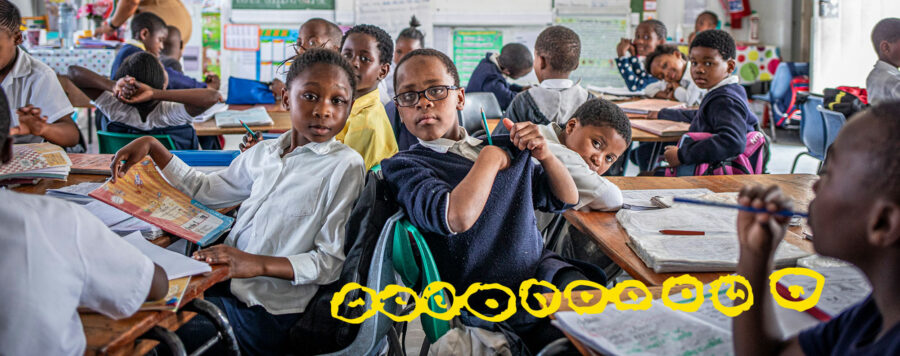Primary school
Aftacool
The Aftacool curriculum is designed specifically for primary school children in townships where they have had limited involvement with books and educational activities – the material is simplified so that it can be presented by mothers with limited or no formal training. We make use of interesting picture books – to make the reading engagement more fun and less intimidating. Each box is themed around a picture book. Each term, books are selected that fits into one of four categories:
- Emotional Intelligence skills
- Aesop’s fables
- What the world has to offer
- Creative thinking
Each term, one of the books introduce an element of emotional intelligence, according to the EQ.i 2.0 model. The Aftacool mothers are encouraged to focus on this skill throughout the term. Books that show ‘what the world has to offer’ are chosen to inspire the children to see beyond their community, fostering a love for nature, exposing them new opportunities and introducing past heroes who have dared to embrace this. Math games from OLICO Maths Foundation is also part of the curriculum to help build strong number sense skills and a love for mathematics and every opportunity is taken to incorporate the learnings from the Butterfly Art Project, turning art activities into opportunities for healing and creativity.
Aftacool moms are trained each term on our key objectives and the curriculum for the term and we partner with other organisations to provide quality training to the Aftacool mom i.e Identifying and Dealing with Trauma, Resilience and Counselling and Art. We feel in order for the AfterCool Moms to be able to emotionally support the children in their group they sometimes need specialised support themselves.
We have strong monitoring and evaluation in place:
- Aftacool mothers are asked to provide a report on the emotional skills the children display each term to show each child’s emotional awareness progress over a period of a year;
- We do a literacy assessment with every child and embark on a journey to improve their reading so that each child reads and understands at least 10 or more books over a period of a year;
- We track the attendance of each child with an app called Teampact. We want the child to attend more than 75% of the Aftacool club activities and follow up when a child is not attending;
- The parents whatsapp group and informal parent meetings to involve the family unit;
- Unannounced termly visits to evaluate the quality of the programme and facilitation skills of the Aftacool mom.
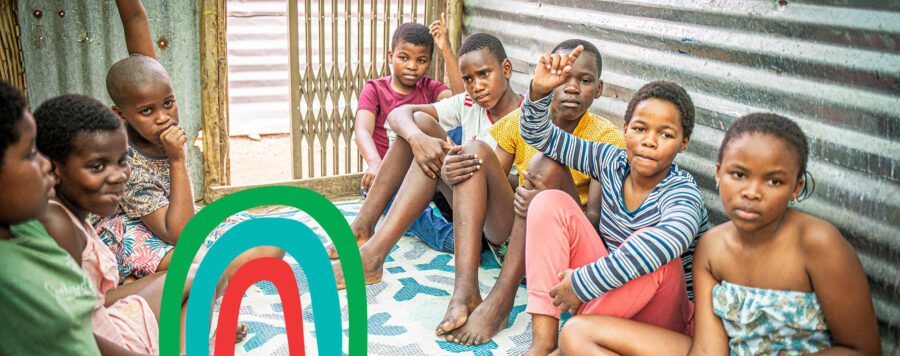
Maths club
Maths Clubs provide fun, exciting and engaging maths activities for learners in Grades 1-6. The lesson plans and activities are designed to build strong number-sense skills and a love for mathematics.
South Africa currently sits with a crisis in primary education where learners are still bound by using concrete strategies to solve problems. Many learners are ‘trapped’ in using concrete one-to-one counting methods or dependence on algorithms without understanding. The result is an absence of flexibility and fluency with both numbers and operations. Progressing learners from inefficient, constrained methods of working to more fluent and flexible methods is an important aspect of this programme. See table below:
 A number sense approach can be useful to think about the relationship between the two strands. A child with number sense has the ability to work flexibly with numbers, observe patterns and relationships and make connections to what they already know, to make generalisations about patterns and processes.
A number sense approach can be useful to think about the relationship between the two strands. A child with number sense has the ability to work flexibly with numbers, observe patterns and relationships and make connections to what they already know, to make generalisations about patterns and processes.
Short games, particularly those played with cards and dice, are very accessible to learners and can aid in the development of core number skills, mental agility and fluency in number.
Benefits to learning through games include motivation, developing positive attitudes towards maths and allowing children to operate at different levels of thinking as well as providing opportunities to learn from each other.
Games taught and used in the clubs can potentially also be played at home and shared with family members, thereby allowing learners to spend more time on maths, to consolidate skills and practice what they have learnt in class, to teach other people the rules and to get other people involved in mathematics.
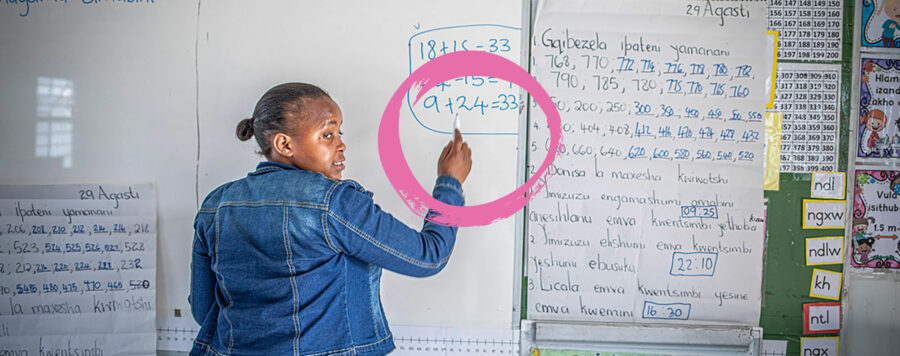
Creative Club
Art is a medium that enables healing and promotes creative skills that can be utilised life long. This is important in a country where trauma exists especially in under resourced communities. South African schools are in a state of multi-level crisis, exacerbated by the diminished budgets for arts in primary schools, resulting in most not having art in their curriculums. Creative development is an essential part of child development.
Our Creative Arts facilitators are trained by the Butterfly Art Project to provide psycho-social support through art therapeutic classes. The therapeutic art classes help children to stabilise through developing healthy coping mechanisms for processing stress and healing from trauma. Facilitators are trained in four artistic mediums: clay, watercolour paint, free drawing and mixed media which equips them to develop lessons to grow resilience, concentration, social skills, interest in learning, confidence and fine motor skills with the beneficiaries.
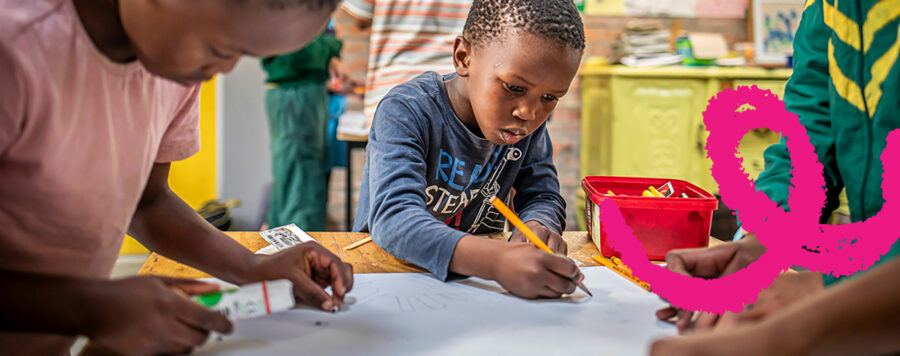
Coding club
Coding is a valuable skill that can help learners develop problem-solving, critical thinking, and computational thinking abilities. In disadvantaged schools in South Africa, where access to resources and opportunities may be limited, coding can provide an avenue for learners to develop the skills they need to succeed in a technology-driven world.
Our Coding Club has two streams. The first stream is a weekly computational thinking programme targeting grade 4-7 learners. Using resources and curriculum designed by Computer Science for All in SF, this programme familiarises children with cognitive skills used in computer science as well as with the basic concepts of coding and programming.
Our second stream is also a weekly club for learners who have shown an interest and commitment after attending the beginners programme. This is a smaller group of learners and we make use of the Tanks gaming app and code.org. We are in the process of finalising the curriculum and have also introduced robotics as a fun activity. Overall, a coding programme for primary school learners in disadvantaged schools in South Africa should be designed to be accessible, hands-on, and collaborative. By providing learners with the skills they need to succeed in a technology-driven world, such a programme can help level the playing field and provide opportunities for learners to thrive.
The schools in Dunoon and Joe Slovo do not provide any coding subjects for learners and it is our goal to introduce this subject in all 6 schools we work with.
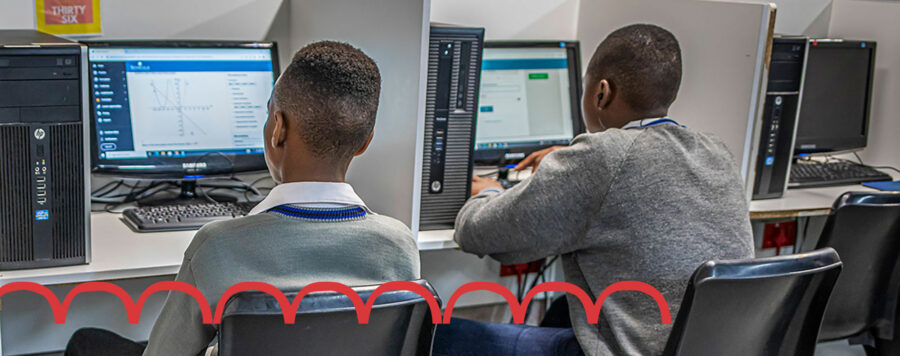
Reading clubs
At the beginning of every year we do a literacy assessment with the learners who attend our Aftacool programme and our Siyafunda After School Clubs. Learners who are identified as struggling readers are invited to join our remedial reading clubs. Every learner has different learning needs and it’s important to identify that at first. If a learner is at sound level we go back to teaching phonics and if a learner is struggling to read words we explore blending. Some learners can read but they cannot read for meaning. We then encourage reading at home and read through books with them so that they can increase their vocabulary and understanding. Some of our struggling readers get an educational tablet provided by the Breteau Foundation with literacy games and many stories to read to use at home for 6-12 months..
All of our struggling readers have shown improvement on this journey from struggling reader to reading for enjoyment!
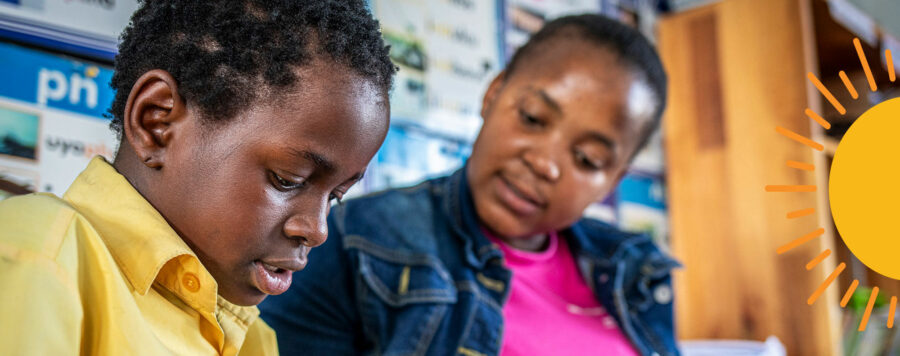
Yebo academic programme
We have partnered with the YearBeyond office and Rogz Academy as an implementation partner of the Yebo Academic programme in 2023 creating opportunities for 45 youth and reaching 840 learners daily. Youth unemployment remains one of South Africa’s biggest challenges. Despite increasing access to education, almost half of the learners who enter school in grade 1 do not obtain matric. Young people who do complete their schooling, but come from disadvantaged backgrounds continue to have fewer post-school opportunities and are more likely to end up not in employment, education or training (NEET). Data further highlights that the longer a young person stays out of work, the lower their chances of ever working, and the higher the likelihood that they will stay trapped in poverty. The YearBeyond programme provides youth (18-25) with a meaningful work experience, a pathway into studies or work and a social and economic network.
Youth are trained up as Yeboneers to work with struggling Grade 3 and 4 learners in low- and no-fee schools in the Yebo Academic programme. They support their assigned class teacher during the day, as well as provide one on one paired reading support to the learners on the programme. After formal school hours, YeBoneers run an After School Programme from Monday to Thursday that is designed as a catch-up intervention to assist struggling learners in closing their foundational literacy and numeracy gaps. On Fridays the Yeboneers meet their mentors and our management team for reflection and personal and professional development.
We are working closely with the principals, school teachers, yeboneers, mentors, parents and the YearBeyond office to make this programme a success. We want to see the struggling learners build confidence in reading and develop a love for math so that they start enjoying school and also encourage their peers.
